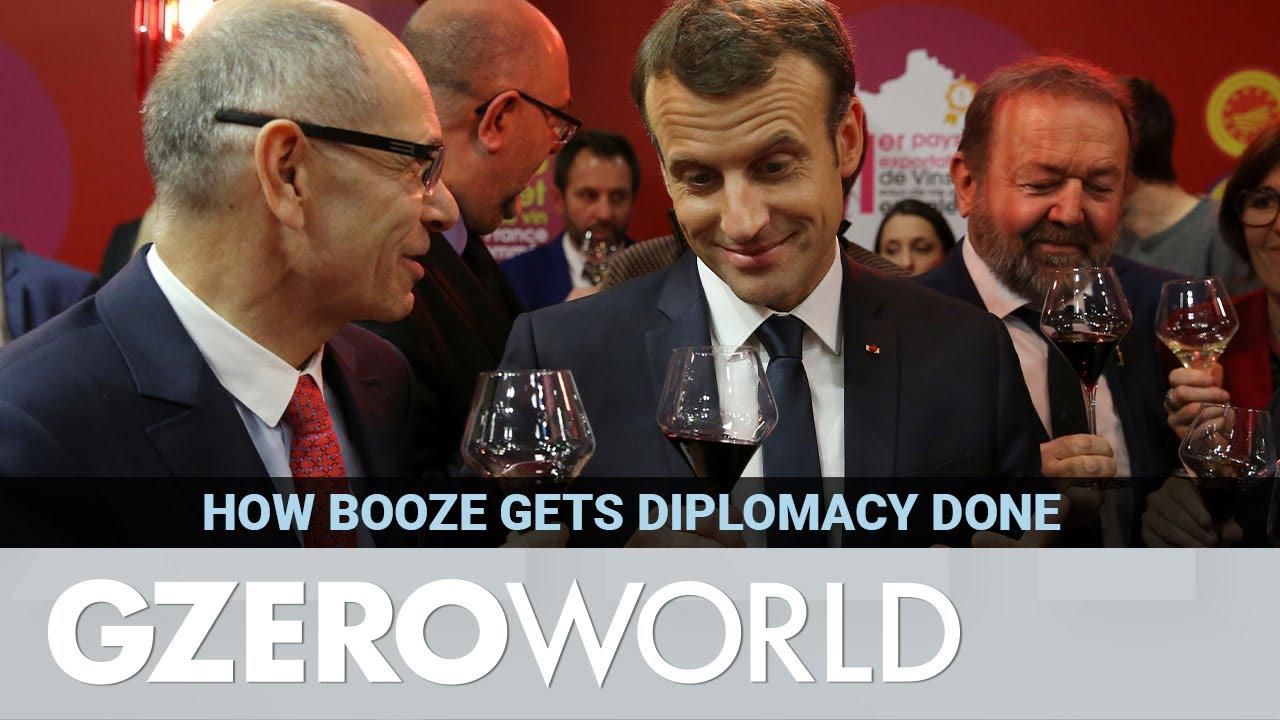
How Booze Helps Get Diplomacy Done | GZERO World
Why do (most) world leaders drink together? It can get them to agree on stuff they wouldn't while sober. Booze "helps people get cooperation off the ground, especially in situations where cooperation is challenging," says University of British Colombia professor Edward Slingerland. Alcohol, he explains, allows you to "see commonalities rather than just pursuing your own interest," which may put teetotaler politicians — like Donald Trump — at a disadvantage. Watch his interview on the next episode of GZERO World. Check local listings to watch on US public television.